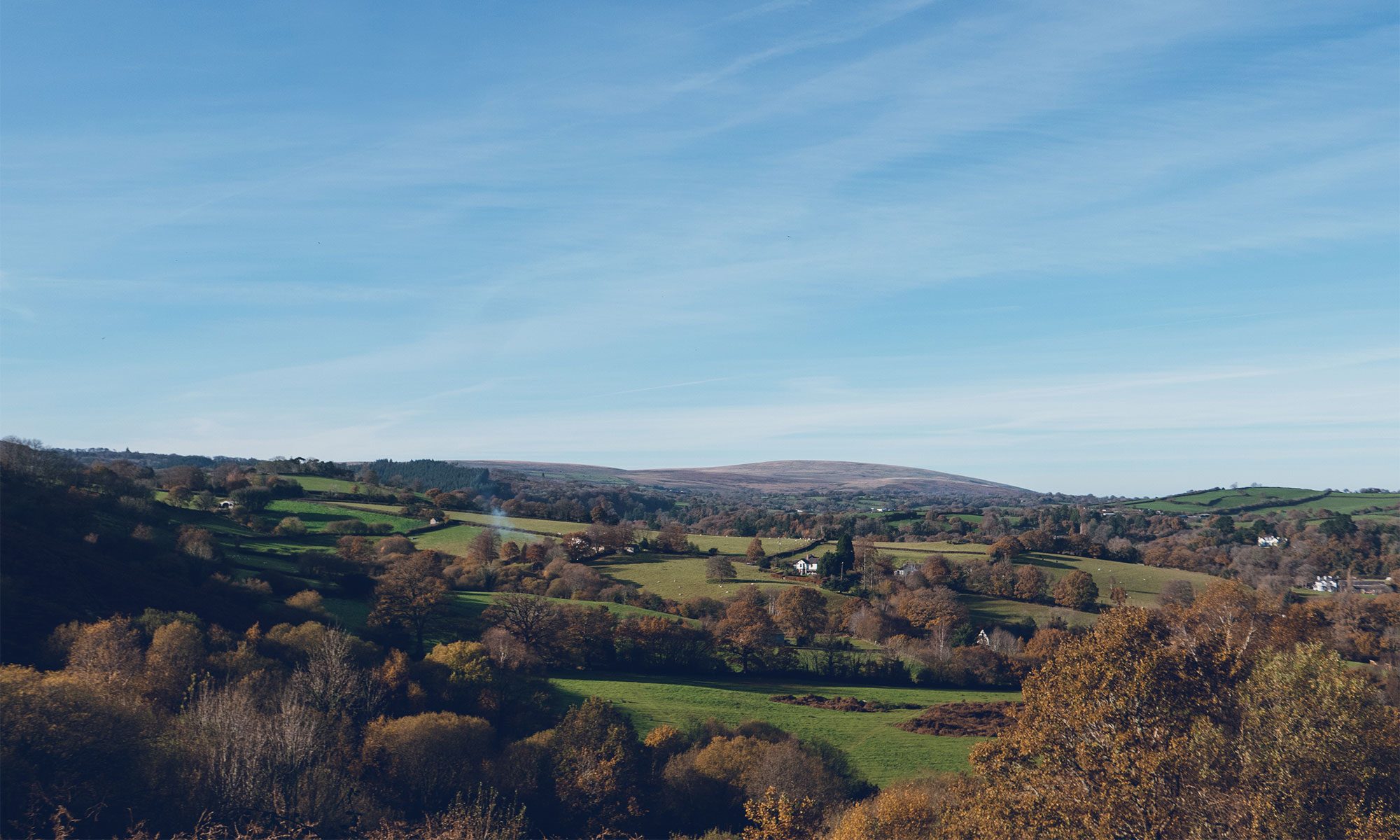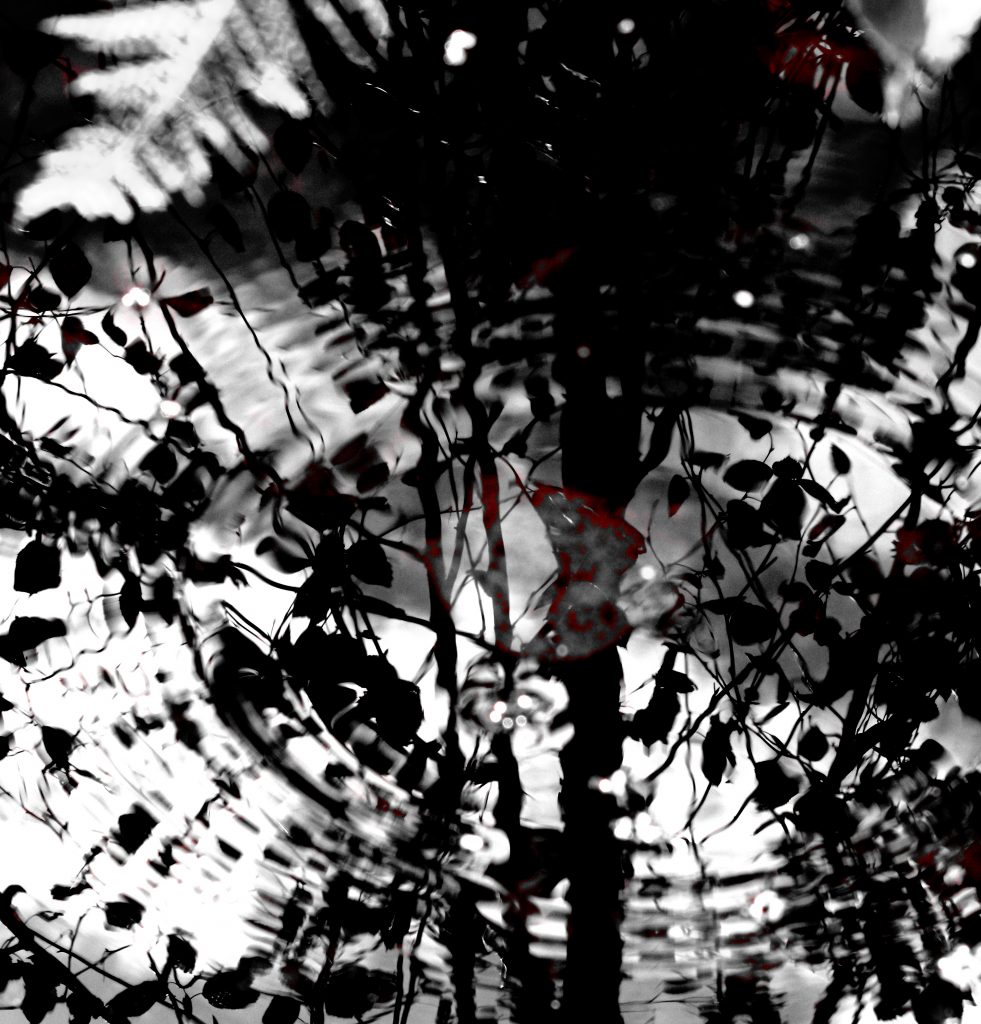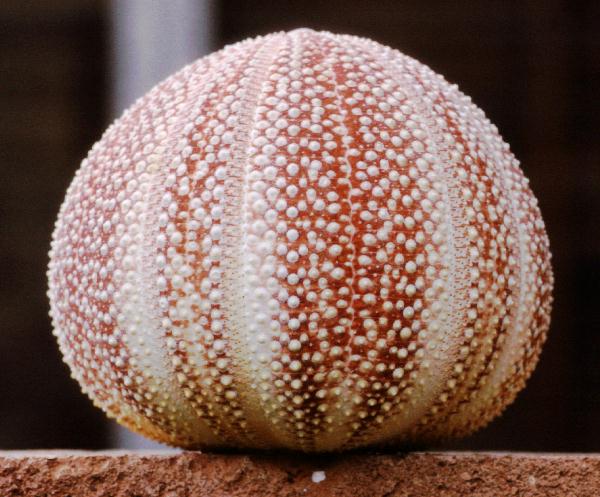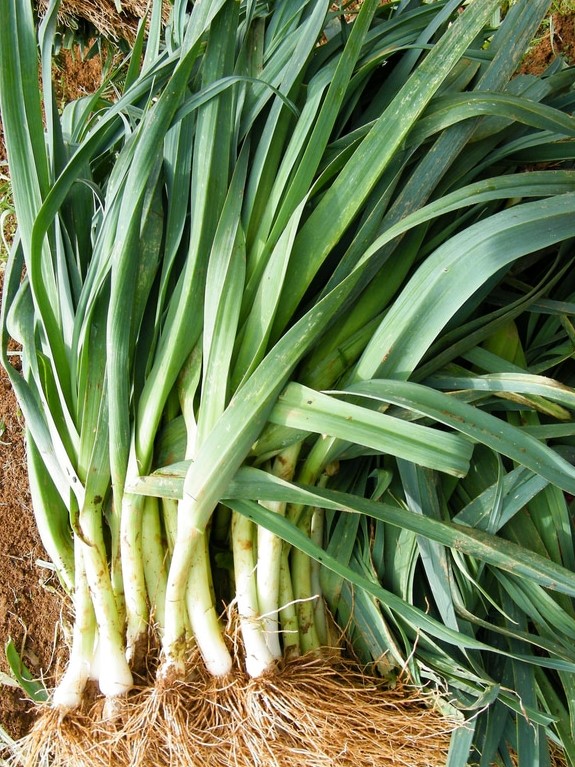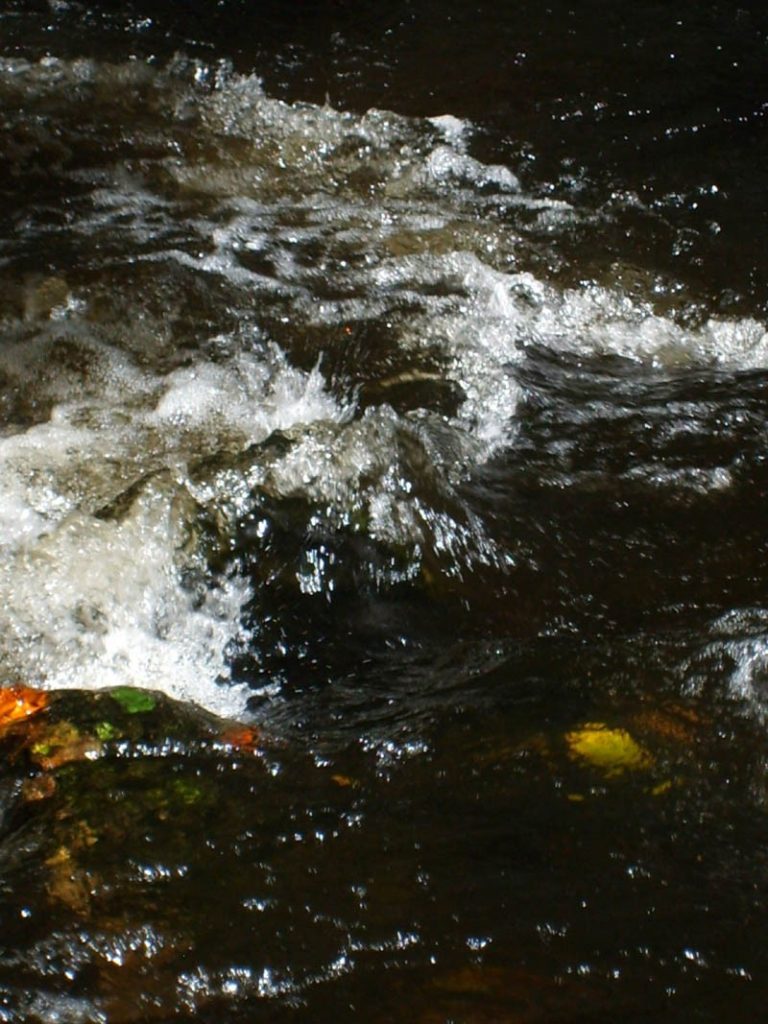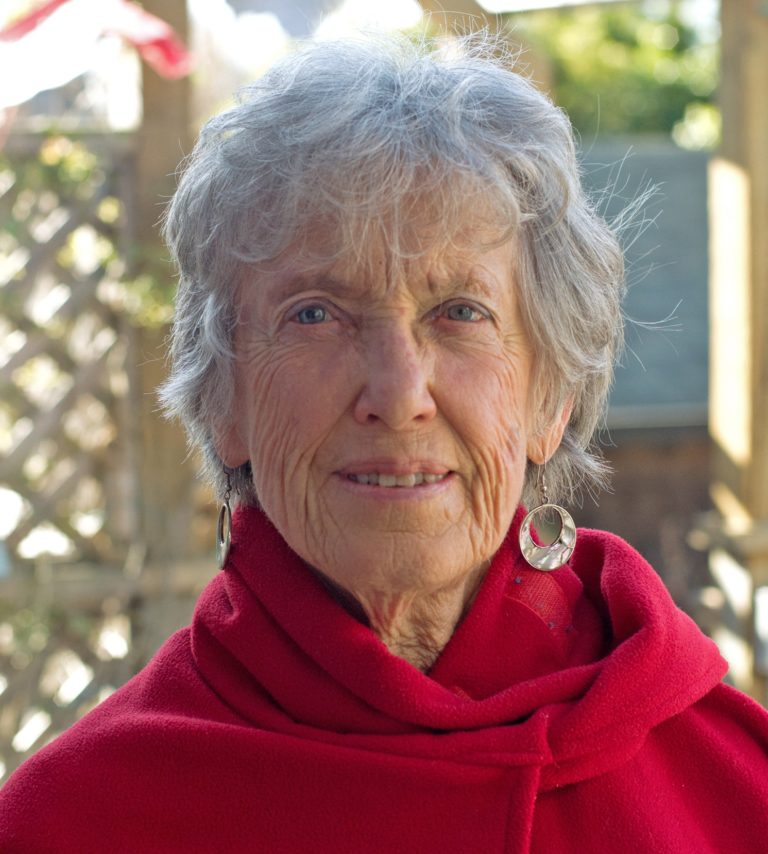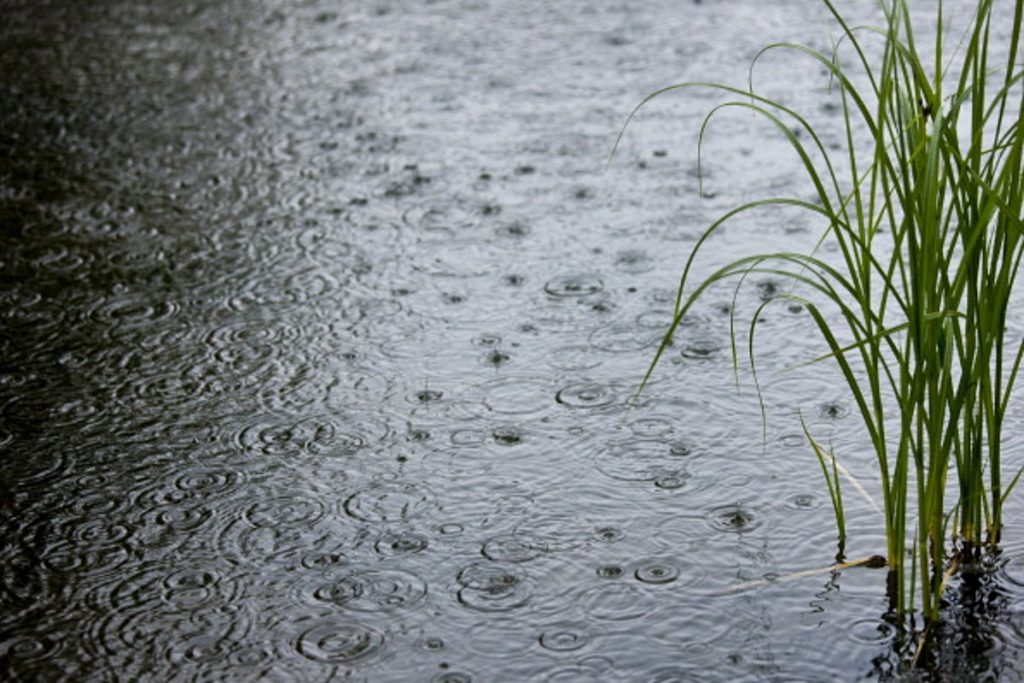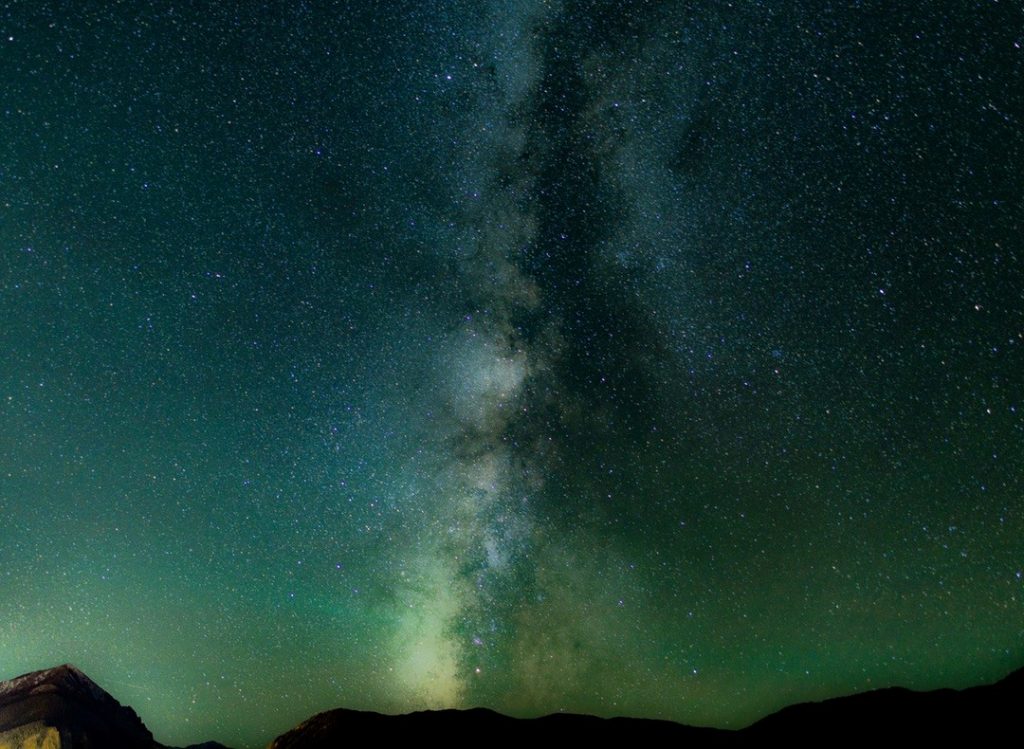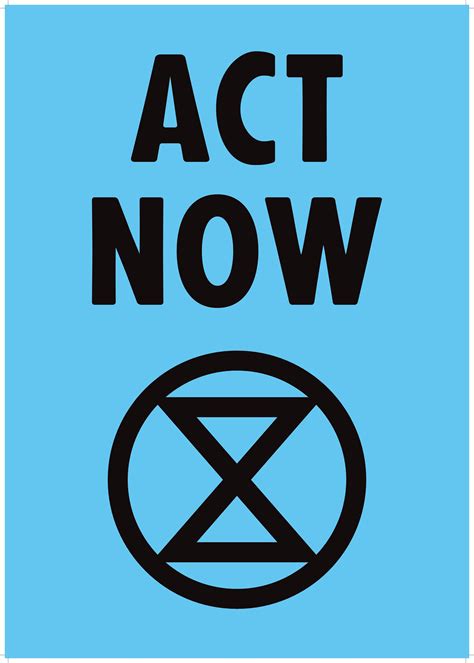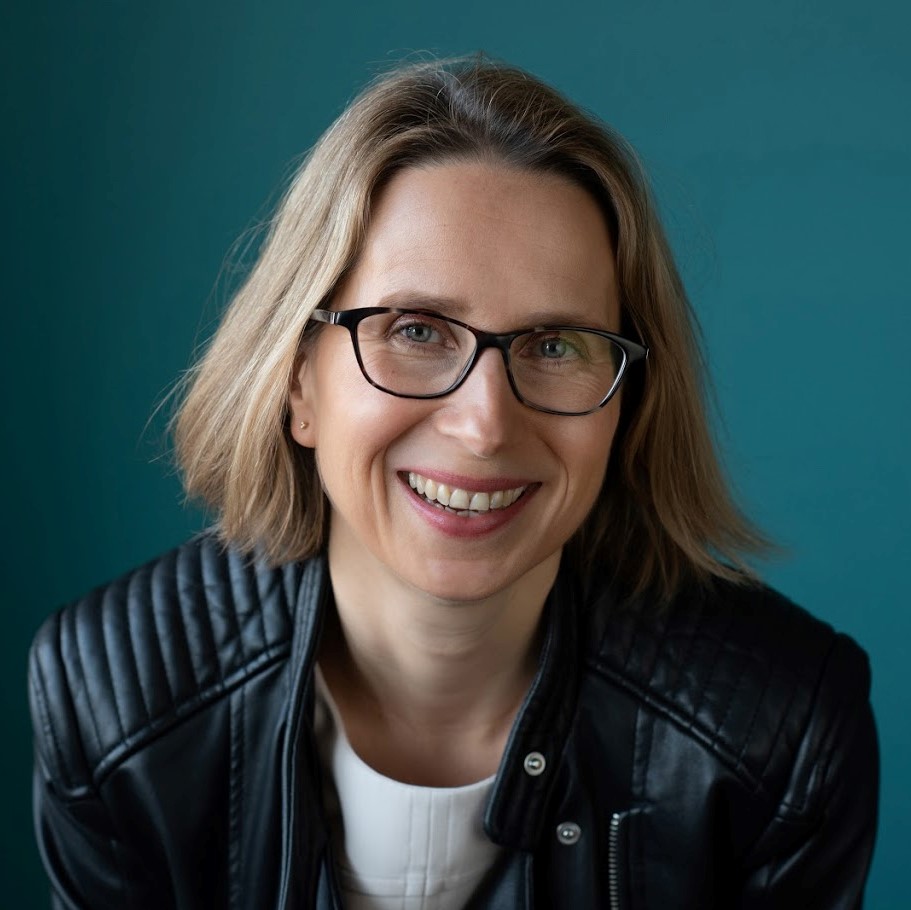How should we think about addressing climate change?

Over the past fortnight at COP 26 debate has circled around pragmatic questions; fossil fuels, net zero, eco-efficiency, green consumerism, conservation management, political policy, economic reform and scientific or technological ‘silver bullets’.
But what about other ways of thinking about solutions to the issues? Amid all the noise, and with so many points of view vying for attention how do I make sense of my place in relation to it all?
Over these days as I watched the news, and published the posts, I noticed different ways of thinking emerge as different contributors from different worlds offered their thoughts about questions raised by the climate catastrophe.
As I tried to make sense of the voices I remembered coming across a paper by political theorist John Dryzek, this was back in 2007 while studying for a MSc in Responsibility and Business Practice. It helped me understand and untangle different ways of thinking and talking about environmental challenges. Dryzek argued that environmental discourses fall into four different buckets (my image not his!) or discourses, either reformist or radical, and either prosaic or imaginative.
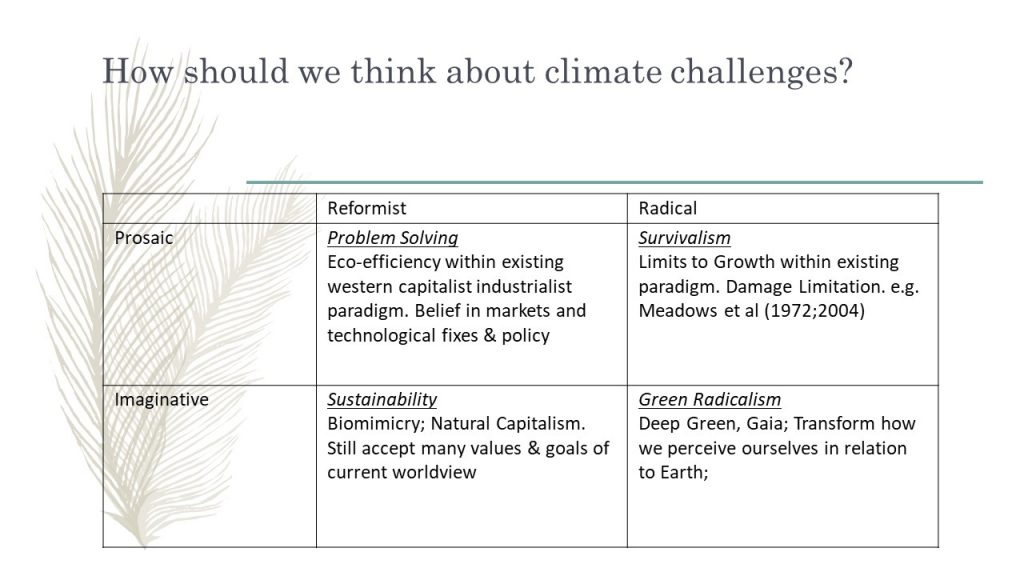
University Press.
The top left, prosaic and reformist frames the challenge within the current economic and social worldview. In other words, we need to tweak business as usual but basically can trust technology and markets to rise to the challenge and fix things. This was the loudest voice inside COP.
Top right, prosaic and radical on the other hand argues that there are limits to growth on a finite planet and to avoid disaster we must cut back economic activity. This might look like the call to rethink Christmas that just dropped in my inbox today, to reduce consumption.
In the bottom left ‘bucket’ the reformist and imaginative discourse operates largely within the ideals, values and worldview of current consumer-capitalist mindset, saying we need to do business better. Tackle things more creatively and intelligently, cradle to cradle, regenerative design fits here.
Finally, bottom right, the imaginative and radical approach seeks to shift consciousness, transforming the way we experience ourselves and the planet. Here all life is seen to have value in and of itself, not just as a resource for humans to utilise. This ‘deep green’ approach might involve a panpsychic perspective. In their beautiful pamphlet ‘On Sentience’ Peter Reason and Sarah Gillespie put it this way: “What would it be like to live in a world of sentient beings rather than inert objects? How would we relate to such a world?” This discourse can take a spiritual turn, seeing the sacred or divine immanent in the earth. A key movement here is in a shift of identity from a separate self, towards a connected self, what is sometimes called an ‘ecological self.’
Though these different ways of seeing the climate crisis and the best way to tackle it can and overlap, they are often in conflict and competition with each other. Think of the activists protesting outside COP26, angry with the prosaic reformist inside, or those inside wanting them to ‘go away’ so they can get on with the hard work of fixing the problem. Or, as we heard in posts here a cynical ‘your are away with the fairies’ or ‘in Narnia’ – a bemused ‘what’s the point’ of any of this in the context of business or a school of management?
I didn’t organise the way different discourses presented themselves over these two weeks, but reading back it looks like I might have. Perhaps it’s because most of us are dipping our hands into more than one ‘bucket’ as we go about our professional and personal lives, giving us access to different ways of thinking. I can easily name organisations and people I work with from all four discourses. This gives me hope, the challenges we face are complex, far reaching and systemic, we need to recognise, understand, accept, include, and co-ordinate all of these approaches. I have my own preferences and perspectives, but if we are to have any hope of tackling the challenges we’d best stop bickering among ourselves to link arms and work together.
Dryzek’s analysis is useful, but I’d like to offer another way of expressing this, from Joanna Macy and Chris Johnstone in Active Hope https://www.activehope.info/the-book
They outline three dimensions of work that needs to be done to turn around the climate crisis: Holding Actions, Life-Sustaining Systems and Practices and Shift in Consciousness. They are mutually reinforcing and equally necessary, each one leads into the others.
Holding Actions focus on holding back and slowing down the damage being caused by ‘business as usual’. This can include raising awareness of issues, as well as direct action and protest. These voices are often outside conference rooms, out on the streets. The goal here is to protect what remains. Holding actions are essential; they save lives, species and ecosystems. But, though protest is vital, they point out that on their own, these actions are not enough. Along with stopping the damage, we need to replace or transform the systems and institutions that cause the harm.
Life-Sustaining Systems and Practices involve rethinking the way we do things, redesigning of the structures and systems that make up our society. The green shoots of these practices are all around us. We can all support and participate through our choices about how to travel, where to spend our money, what to eat, where to save. Social enterprises, sustainable agriculture, green energy and investing, all are small steps that contribute to the creation of a life-sustaining society. But like holding actions, by themselves they are not enough. These new structures won’t take root and survive without deeply ingrained values to sustain them.
Shift in Consciousness involves a deep transformation from the hyper-individualism that’s become a hallmark of a ‘business as usual’ mindset, to a deepening of our sense of belonging in the world. This is the emergence of a more connected and compassionate sense of identity. This shift in consciousness involves our hearts, our minds, and our views of reality. For me, the practice of paying attention to small things, here, with care, in this place, keeps my sense of belonging in the world alive and fresh, giving me the energy and nourishment I need to do the work I do out in the world. Chris and Joanna call this “the inner frontier of change, the personal and spiritual development that enriches and deepens our capacity and desire to act for our world.”
I hope you’ve enjoyed some of the ‘Thoughts for the Day’ we’ve offered over the past 14 days – I’m going to take a break, head up to the allotment and be quiet now!
